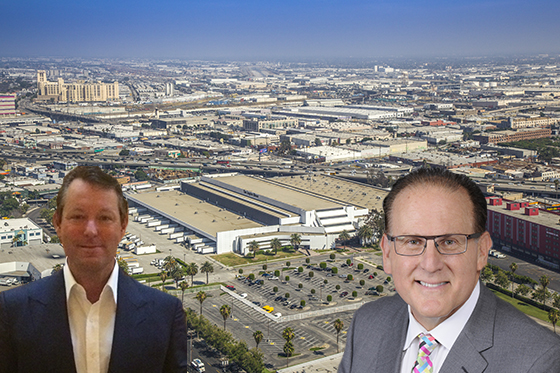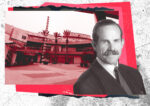Trending
Stop the presses: Harridge pays $120M for 26-acre LA Times printing plant site

A partnership headed by Harridge Development Group purchased the 26-acre Los Angeles Times printing plant just south of the Arts District from Tribune Media’s real estate arm for $120 million, The Real Deal has learned.
The purchase price equates to a price per square foot of approximately $106 for the land.
The site at 2000 East 8th Street, bounded by Olympic Boulevard and Alameda Street, is the largest in a flurry of land grabs in and around the neighborhood in recent years, as its appeal spreads beyond its technical borders. JLL’s Carl Muhlstein, Jeff Adkison and Rob McRitchie brokered the deal, which closed this week.
“The Arts District is more a state of mind than a hard border,” Muhlstein said, adding that between the massive printing site, SunCal’s land and AvalonBay’s development, the area near the 10 freeway has “a lot of filling in to do” with new uses.
Seven acres of the printing plant site are immediately developable, and Harridge plans to build retail, including a mid-level grocery store, on that part of the site.
David Schwartzman, CEO of Harridge, called that plan “against the trend,” a reference to the spate of residential projects planned for the Arts District.
“There is so much residential, and a lot of high-end [stores] but you need everyday stuff,” he said. “You need the grocery stores, the Walgreens.”
The four buildings on the land — a pressroom, a plate-making department, a storage facility and a shipping area — are leased to the Los Angeles Times’ publisher, now known as tronc, until 2023.
Harridge hasn’t finalized its plans for the part of the site where the Times’ still prints several newspapers, Schwartzman said. It’s not planning small lot homes, as it has in Frogtown, or a hotel and condo complex, as it has in Hollywood.
“I never say never, but I don’t think it’s going to be a residential play,” he said. “It’s going to be consistent with the general plan, without a zone change.”
While it’s waiting to develop the site, Harridge will collect significant rent from tronc, which sources said pays roughly $4 million a year in rent. Completed in the late 1980s, the printing facility opened in 1990, with a staff of 1,500 people that printed only one newspaper. Now, a staff of 150 prints six newspapers on the site, Muhlstein said.
The $106 per square foot for the land is significantly less than the roughly $207 SunCal paid last year for the 14.5-acre site where it’s planning 1,736 residential units, two hotel towers, shops, creative offices and a school, as well as 23,000 additional square feet for art and two parks.
What is actually possible to build in the Arts District proper is largely unknown, due to legal battles over the hybrid industrial ordinance — an attempt to eradicate spot zoning in the former industrial area that many say only complicate development. Projects that don’t require a zoning change have an advantage, including avoiding the possibility of being stalled out if the Neighborhood Integrity Initiative passes.
The sale of the printing plant was one of three properties sold this month by Tribune Media for a combined $430 million, according to a company release. Onni recently closed on the Times’ Downtown headquarters for $105 million, and L.A.-based CIM Group nabbed Chicago’s Tribune tower for $205 million. The company will continue to sell off its assets.
“We have made considerable progress toward achieving our goal of realizing at least $1 billion of gross proceeds from the sale of some of our most significant real estate holdings,” Peter Liguori, Tribune Media’s CEO, said in a statement.
The sales are part of a larger trend of newspapers inking deals to sell their properties, Muhlstein noted. Locally, the Korean Times sold its Park Mile building earlier this year. Meanwhile, the Herald Examiner building is being repurposed as creative office and retail space.




